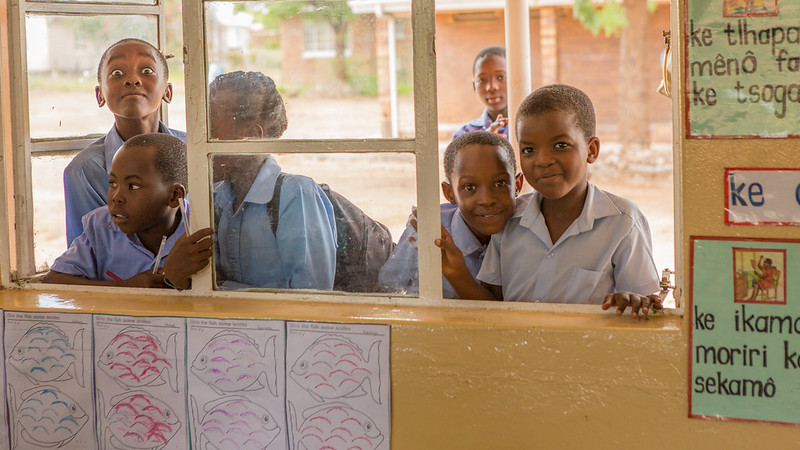Enhancing Youth Employment in Botswana
 Over the last decade, Botswana has seen modest economic growth. From 2003 to 2010, the poverty rate dropped from 17.7% to 15.4%. However, compared to nations with similar population densities, Botswana’s poverty rate remains notably high. The 2015 drought exacerbated poverty management challenges, especially affecting vulnerable populations. Rural areas, in particular, struggled due to limited employment opportunities and the drought’s impact, pushing more citizens below the poverty line.
Over the last decade, Botswana has seen modest economic growth. From 2003 to 2010, the poverty rate dropped from 17.7% to 15.4%. However, compared to nations with similar population densities, Botswana’s poverty rate remains notably high. The 2015 drought exacerbated poverty management challenges, especially affecting vulnerable populations. Rural areas, in particular, struggled due to limited employment opportunities and the drought’s impact, pushing more citizens below the poverty line.
Employment Challenges in Rural Villages
In Botswana’s rural villages, employment options are limited, particularly due to scarce internet access. Most jobs are in farming and agriculture. In smaller villages, limited educational resources often result in low literacy levels, which poses another significant barrier to securing employment.
Botswana Social Protection Program
High poverty rates in rural areas significantly impact Botswana’s overall poverty level. From 2010 to 2016, Botswana saw a significant decrease in the percentage of children under 18 experiencing poverty-related conditions, reduced from 63% to 49%. The decline reflects improvements in nutrition, housing, access to clean water and education. Children in rural areas, however, remain highly vulnerable to poverty. Botswana stands out in Africa for prioritizing public spending on education, notably through the National Development Plan 11. This plan focuses on enhancing social protection for children and raising awareness about the importance of adequate housing to prevent destitution and improve living conditions.
In Botswana, educational disparities become more pronounced as children age, with fewer progressing to secondary education. This limited educational attainment restricts youth employment in Botswana, confining many to low-wage labor jobs. Specifically, those who do not complete the Junior Certificate Examinations find little support in transitioning to the workforce, contributing to high unemployment rates among the youth.
Government Initiatives in Botswana
In 2023, Botswana’s unemployment rate reached approximately 26%, with youth unemployment also on the rise. President Mokgweetsi Masisi, in his second term, is actively targeting this issue by engaging with the country’s youth. The government has rolled out several initiatives, including the Chema-Chema Fund, aimed at supporting both existing and aspiring entrepreneurs. This fund is designed to foster financial inclusion and boost employment by providing necessary resources to young business owners and entrepreneurs.
Youth Development Fund
Like the Chema-Chema Fund, Botswana’s Youth Development Fund (YDF) is another socioeconomic initiative designed to boost startups and expand businesses. Launched in 2010, the YDF encourages young people to contribute actively to the economy. Its primary goal is to foster active involvement and representation of youth in Botswana’s socioeconomic progress, aiming specifically to create sustainable employment opportunities for them.
Supporting Youth through NGOs
The Jacobs Foundation, operating in Botswana, actively engages the youth through its Youth Impact outreach group, which is based in Gaborone. This initiative, led by young people, focuses on enhancing health and education programs for their peers. So far, it has supported more than 100,000 individuals. A notable program, Zones, involves 90-minute classes conducted in government schools aimed at promoting health awareness among children and young adults. These classes have significantly improved knowledge about HIV and reduced risk-related behavior by 50%.
Potential and Youth Employment in Botswana
According to the World Bank’s Human Capital Index, a child born in Botswana today will be 41% as productive when they grow up, if they can enjoy a complete education and proper health. Botswana’s efforts to reduce poverty and unemployment continue to focus on enhancing opportunities for its youth and addressing ongoing challenges in rural areas. Government programs like the Chema-Chema Fund and the Youth Development Fund aim to foster entrepreneurship and create sustainable jobs. Additionally, NGO initiatives aimed at improving health and education among young people could play a crucial role. Continued commitment to these ongoing strategies could be essential for achieving long-term economic growth and social development in Botswana.
– Brogan Dickson
Brogan is based in Edinburgh, Scotland and focuses on Good News and Global Health for The Borgen Project.
Photo: Flickr
